- in Health by tony
- |
- 2 comments
Natural Antibiotic Food For Health

Antibiotics generally refer to pharmaceutical antimicrobials that are originally designed to fight and kill disease-causing bacteria. Unfortunately, synthetic antibiotics can kill both the good and bad bacteria present in the body. In turn, the living microflora that helps strengthen the immune system can become depleted.
More...
Natural Antibiotic Food Sources for Health
Also, doctors do not prescribe antibiotics as readily as they once did.
This is because studies increasingly show that over-use of pharmaceutical antibiotics is allowing the target pathogens to develop resistance to the antibiotics.
There is a real concern that this could lead to the development of ‘super-bugs’ that are impervious to any known antibiotic, which potentially could result in outbreaks of infections for which there is no remedy.
To alleviate these problems, incorporating foods and herbs that have antibiotic properties into your daily diet can prove to be extremely helpful.
Although this does not eliminate the need to take antibiotics prescribed by your doctor, if and when required, eating foods with antibiotic properties will help ensure that your body will be able to fight infectious bacteria on its own.
These antibiotic food and herb sources will assist in building up your body’s immunity and thereby reduce the need to take synthetic antibiotics for minor health problems that may arise.
Garlic
Garlic has antibacterial and antiviral properties which have been used for centuries in treating both minor and major illnesses. Garlic contains sulfur compounds which are commonly used as key elements in antibiotics.
You can use garlic to help fight flu, colds, and bronchitis.
You may eat 2-6 cloves of raw garlic every day. However, if you find it hard to ingest raw garlic cloves, you can purchase garlic capsules and take them with meals.
For topical applications, you can use the juice from the crushed garlic, or pierce one garlic capsule, and apply it topically to the affected area.
Echinacea
Echinacea tea is commonly used to ease the symptoms of the common cold. This herb is a known infection-buster, as it helps improve an individual’s defense system in the fight against bacteria.
Echinacea can help boost the immune system.
However, it should not be used on a continuous or long-term basis.
The recommended dosage is 3 to 15 drops of Echinacea liquid extract mixed in water, three times a day. For cases of acute infection, Echinacea liquid extract can be taken every two hours.
Honey
Before synthetic antibiotics were even developed, honey was commonly used as an antibacterial treatment in almost all cultures around the world. Honey contains enzymes that can prevent the growth of bacteria.
Those who practice Chinese medicine believe that honey can harmonize the liver and in neutralizing toxins. Honey is used for many health issues including relieving painful wounds and stomach ulcers.
Research reveals that honey derived from the manuka flower helps prevent the Streptococcus pyogenes from hindering the wound healing process.
Turmeric and Honey
The Strongest Antibiotic from Nature Turmeric is an extremely popular spice with potent medicinal and culinary properties. It has been commonly used in the Chinese, Ayurvedic, and Indian medicine for centuries.
This spice with a characteristic flavor and color has been used in the treatments of respiratory issues, liver diseases, skin conditions, cuts, wounds, sprains in muscles, and gastric issues. Numerous studies have shown that turmeric is extremely helpful in the case of infections, digestion problems, inflammation and even cancer.
Cabbage
Cabbage contains cancer fighting sulfur compounds compounds, and just like many other fruits and vegetables, cabbage contains vitamin C which is a natural antibiotic.
Cabbage juice is popularly used for treating stomach ulcers.
If you have a stomach ulcer, drinking one-half cup of fresh cabbage juice up to three times a day for two consecutive weeks will help improve your symptoms.
Add these foods and herbs into your arsenal of natural antibiotics so you can be prepared to fight minor ailments that may crop up.
However, always consult your doctor first.
Don’t go self-diagnosing or administering natural antibiotics, especially if you are pregnant or have any pre-existing medical conditions.
Welcome to my office in Nashville, Tennessee. I want to do a quick video for you and talk about the top essential oils that act as natural antibiotics.
And prescription antibiotics today are wrecking the health of a whole lot of people.
And so I want to talk about the best essential oils to use that are sort of nature's antibiotics.
And if you believe like food is medicine, like I do and really what nature gave us can sometimes be more effective than these synthetics that the pharmaceutical companies created.
I'm actually going to touch on a few others that aren't on this list as well. And here's what you need to know.
I know that when I was a kid growing up my mom always brought me into the doctor anytime I had a cold, the flu, croup, bronchitis, any issue and I always got put on an antibiotic.
And when that happens, what it does is typical, it's not only going to kill the bad bacteria, it's going to kill the good bacteria in your gut.
Doctors and researchers say that 70% of your immune system is located in your gut in your microbiome. And so what's happening is we're giving kids.
doctors are prescribing antibiotic, after antibiotic, after antibiotic which is destroying the good bacteria in the gut causing leaky gut syndrome and autoimmune disease over time.
And these antibiotics are very powerful that a lot of doctors are prescribing today versus what people used throughout history, what they reference in the Bible, what's referenced in Greek medicine, Chinese medicine, they use herbal extracts to treat chronic illness in the body.
So here are the top essential oils that are used in antibiotics around the world today. Number one is an oil of oregano. Now, something unique about oregano is not only is it antibacterial, but it's also antifungal, antiparasitic, it fights off yeast as well, antiviral.
So oregano is powerful at fighting off all forms of pathogens. And oregano contains a really unique compound called carvacrol, and carvacrol is really what makes oregano so powerful.
And the unique thing here is that it's actually been shown to fight off MRSA and strep. It's been shown to fight off antibiotic-resistant bacteria.
So this is something that's happening a lot today as well is because we're using all of these synthetic antibiotics.
It's actually creating these superbugs that are resistant to certain types of antibiotics that medical doctors are prescribing today.
And by the way, if you know what I'm talking about I'd love to hear from you right now, things like MRSA all of the superbugs.
These things are growing and thinking about how it's going to threaten especially our children, our children's children in the future, these superbugs we're creating, it's not good.
Where here is the good news, oregano has been shown in medical studies to fight MRSA and antibiotic strains of bacteria in vitro studies. So again oregano is great.
And I want to mention this too with oregano, my mom at one point had a fungus on her toenail after she went through chemotherapy.
Chemotherapy can have a similar result, it really weakens the immune system, allows the body to be overcome with certain types of infection.
So my mom had a fungal infection on her toe. We started doing oregano oil on it three times a day and after two months it was completely gone. So oregano oil is effective at treating a number of health conditions, it's really a powerful essential oil.
Number two here is cinnamon. Cinnamon contains a compound called cinnamaldehyde, and cinnamon within Chinese medicine is also known to help warm the body. So typically think about winter time, we use cinnamon in apple cider, we use cinnamon with pumpkin pie around Thanksgiving.
Cinnamon is used typically when it's getting colder outside and in Chinese medicine, it's really used to warm the body.
So cinnamon is a great herb, but cinnamaldehyde has been shown to be effective for so many things from balancing blood sugar, by helping support a glucose tolerance factor that's GTF to a number of things.
But one of the biggest benefits of cinnamon is it actually helps in killing off dangerous microbes. Now listen, there's a story in the Bible where there's a plague going throughout the Israelite camp. And God tells Moses and Aaron, Aaron is Moses' brother, the priest at the time.
He said, "I want you to diffuse oils throughout the camp," and actually one of the oils they had during the time was called the holy anointing oil, that was a blend of five oils.
It was a blend of cinnamon, cassia, calamus, myrrh, as well as olive oil and they would put it in like a glass jar and they would actually anoint the head of kings with it.
But one of the things they did when this whole camp was sick with a plague, they actually fumigated it with cinnamon oil, and it said it killed off the plague.
When people were sick in biblical days they would anoint their head, and in the Bible it says, if you're sick go to the priests or the elder, have them pray for you for healing and have them anoint your head with oil.
Well, cinnamon oil was one of those oils in that holy anointing oil blend that's still used by certain churches around the world today. So cinnamon oil has antibacterial properties, it's been shown to help fight infections as well, cinnamon also it's very warming.
So especially if somebody is sick with a cold, or flu, or has shivers and is cold and you need to warm their insides, cinnamon oil is fantastic, it's a fantastic oil to use.
Number three is thyme essential oil, and thyme is very high in a couple compounds. Number one, it's very high in thymol. In certain species of thyme also has some of what makes oregano beneficial as an antibiotic and that's carvacrol, but again larger amounts of thymol. And this is really, really effective especially when with bronchial issues, bronchial infections, bronchitis, pneumonia, sinusitis. Thyme is also unique in that it's a pro-progesterone.
It's even been shown to help balance out hormones and strengthen the kidneys in Chinese medicine, it's known to help strengthen the kidney Qi and overall energy. But thyme has very, very strong antimicrobial properties there as well, and is supposed to help support the circulation of the body especially of the lungs within Chinese medicine.
So if you have an infection or again, or an issue especially related to the lungs, or sinuses, or breathing, thyme is one of the best.
It's the best time to use thyme.
Do you get that?
I thought that was pretty funny.
Number four here,
tea tree oil.
Tea tree oil is also known as melaleuca, melaleuca, and tea tree oil. Tea tree oil is very high in something called terpinene as well as cymene. So terpinenes and cymene is what you're going to find in tea tree oil.
Now, this is a plant that's typically found in Australia.
So it's found in Australia today.
And this was used by Aborigines, they would actually take it and turn it into a paste and when people had flesh wounds during war different types of infections, or injuries, they use this directly on the skin to fight infection.
So again, if you have a cut, or a scrape, or a burn, or an open wound, tea tree oil, one of the best, probably maybe the best on this list of treating the skin directly to treat any type of wound or infection and using it as a natural antibiotic.
This is one I don't want to recommend internally. And I want to say this, many of these oils are used internally.
You want to be careful with these oils that are powerful antibiotics. Typically, people that have GI issues like an inflammatory bowel issue, typically or very young children, you would not want to use these oils internally, pregnancy as well.
So again, always consult with your physician before using any type of these oils internally.
But if somebody has a pretty robust system and they just really get run down or they definitely get a strong infection, anywhere between 3 to 14 days you could take these oils internally with food.
If you're going to do a cinnamon oil, two to three drops three times a day in food is how you'd want to take those. But again, always consult with your physician or a health care practitioner if you are going to do these internally.
Tea tree oil is one you don't want to do internally at all because of the nature of some of the compounds within tea tree oil.
Some other powerful oils when it comes to infection, eucalyptus oil can be very, very power especially for fighting pneumonia, different types of bacteria as well.
Ginger oil if somebody has a cold or flu is very powerful at warming the body.
Clove oil has many of the same benefits. It's high in cinnamaldehyde as is cinnamon, but this is another oil that especially has anti-parasitic benefits. If somebody's looking to fight a parasite, clove oil tends to be very, very powerful as well.
And then surprisingly lavender oil. Lavender oil has been shown to help different things, such as types of Candida or the different species of bacteria that can cause acne, it can cause that.
And let me say this in terms of infections as well or bad bacteria, tea tree oil mixed with honey is ideal for fighting acne.
So tea tree oil mixed with raw honey or Manuka honey, putting it on for two minutes, washing it off, a great natural acne treatment. So as you can see, essential oils really are nature's antibiotic, and if you have an essential oil, you love or you've used as a natural antibiotic, post it right now here
I'd love to hear from you.
And if I missed an essential oil, which there are many I know I missed, but if there are specific essential oils you've used for their antibacterial properties, post that on Facebook Live now and YouTube Live, I'd love to see which essential oils you're using most on a regular basis to fight infection.
I want to say this, if somebody is chronically ill or has a very serious life-threatening infection, these are not replacements for prescription antibiotics, but again, I want to reaffirm and say that and say use these responsibly.
But remember, oftentimes too many people are just running and getting antibiotics and they're being prescribed like candy for things like viruses, when in fact antibiotics, synthetics don't fight viruses versus these essential oils.
Many of them have antiviral, antiparasitic, anti-yeast, antibacterial properties, and are very effective.
And again, what people have used for thousands of years for fighting bacteria, bad bacteria, or pathogenic bacteria because we know, hey there is some good bacteria like probiotics that line our gut wall.
So, guys, this has been me Dr. Josh Axe talking about the best essential oils used as antibiotics.
Hi. Dr. Axe here, want to say thanks so much for checking out this YouTube video and also don't forget to subscribe if you want to get more great content on things like herbs, essential oils, natural remedies, and how to use food as medicine. Thanks for watching. .
As found on Youtube
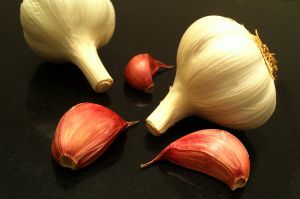
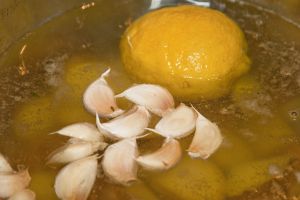

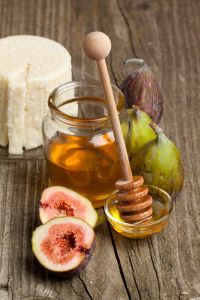
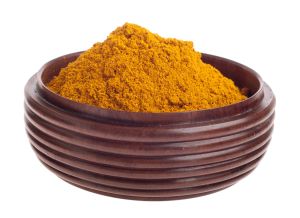
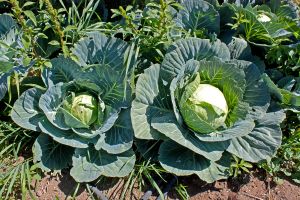







[…] Most people are not getting enough of is turmeric. […]
[…] plenty of all fruits, particularly watermelon and papaya, as well as […]